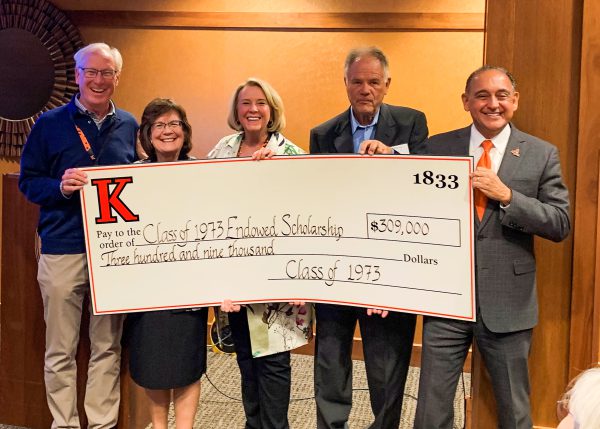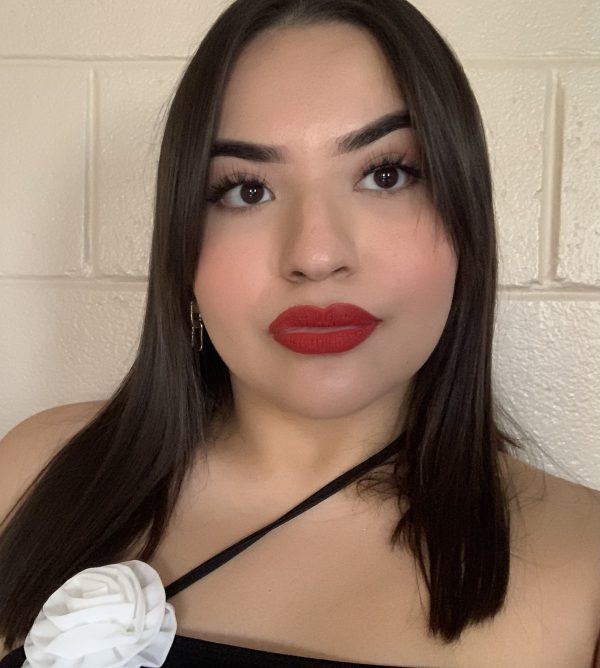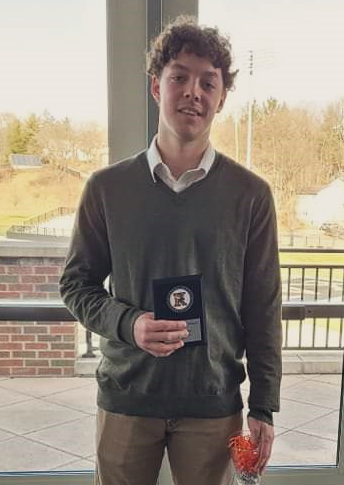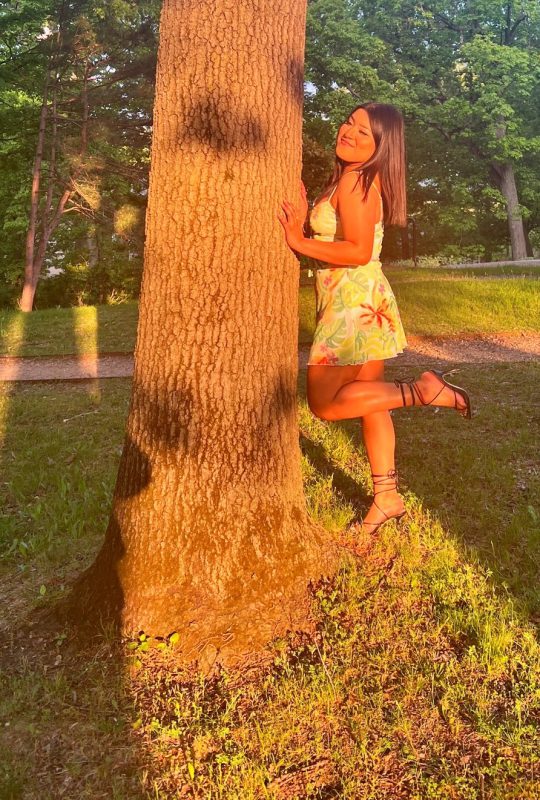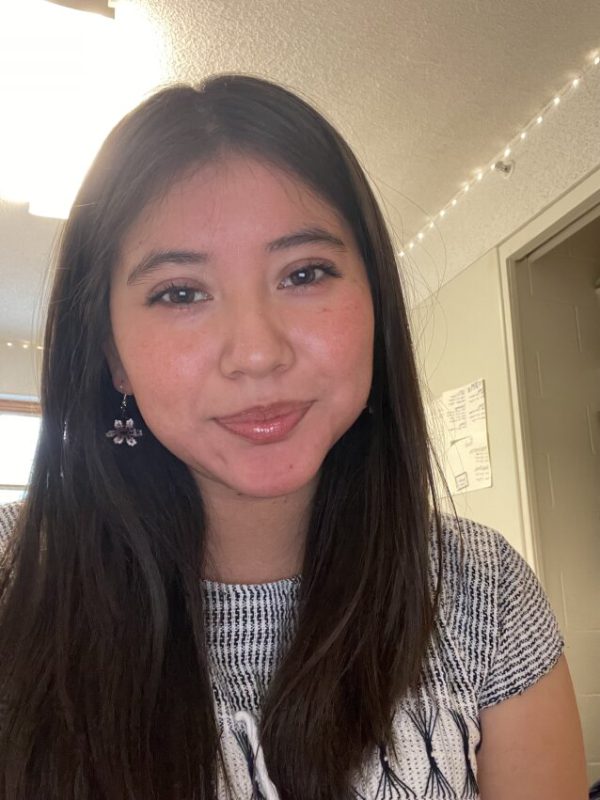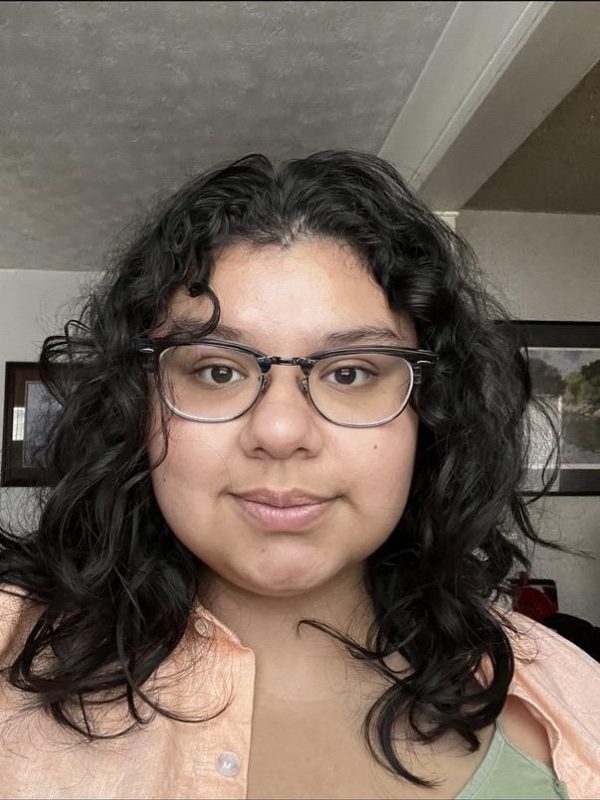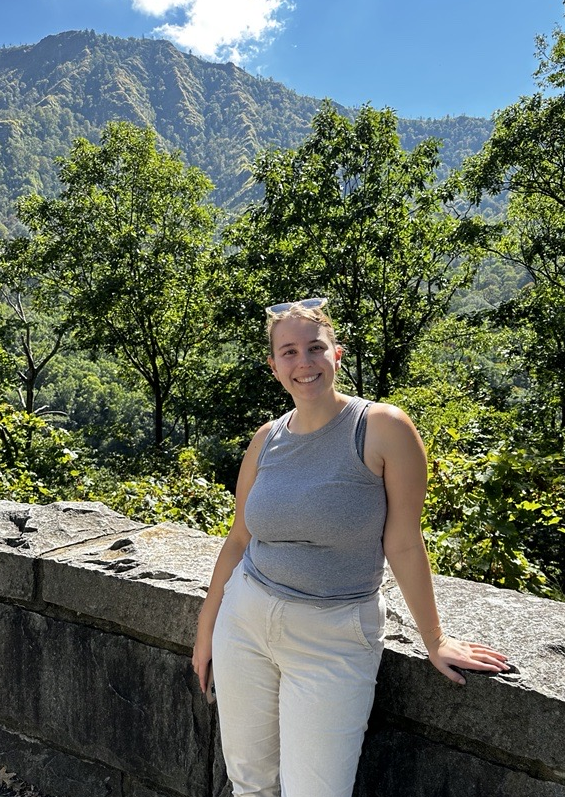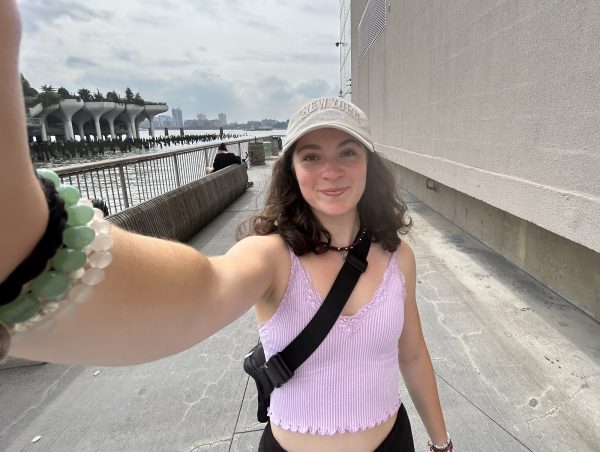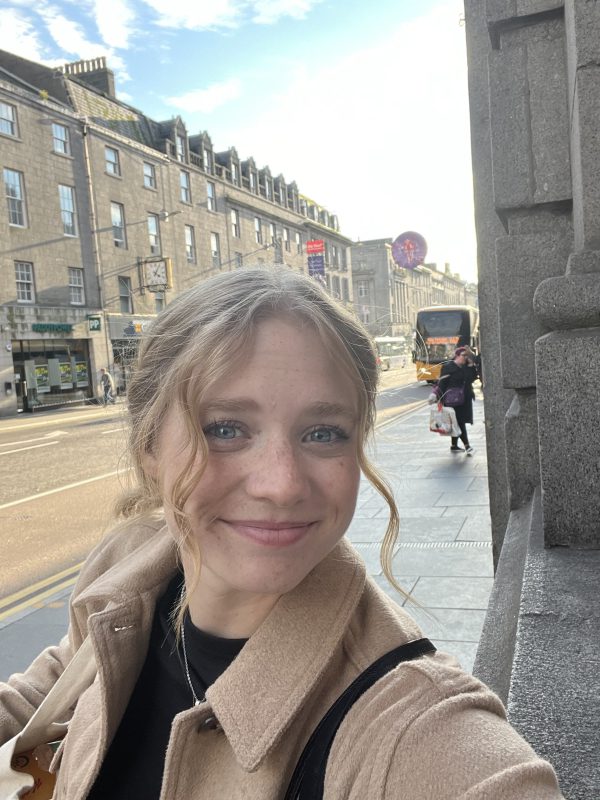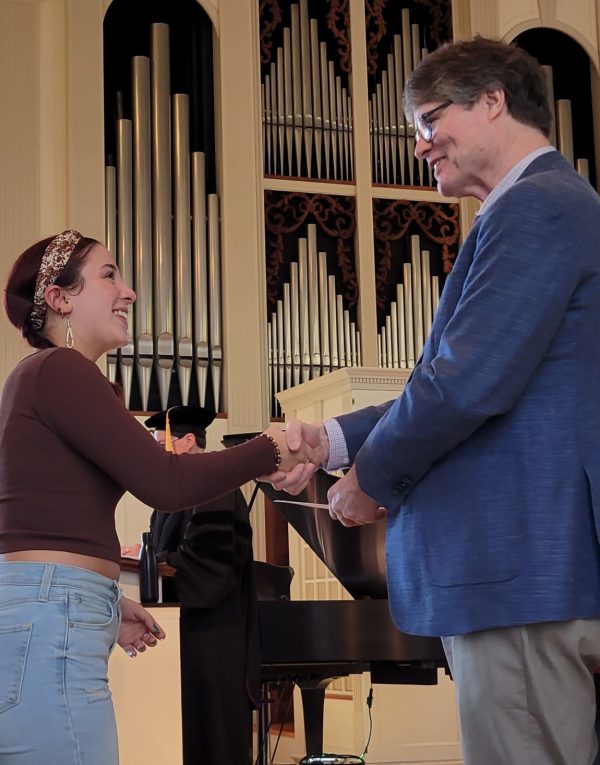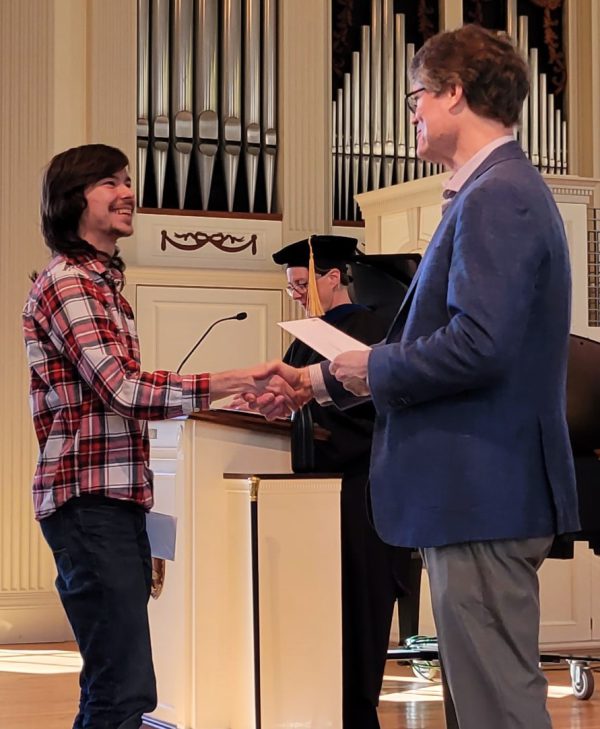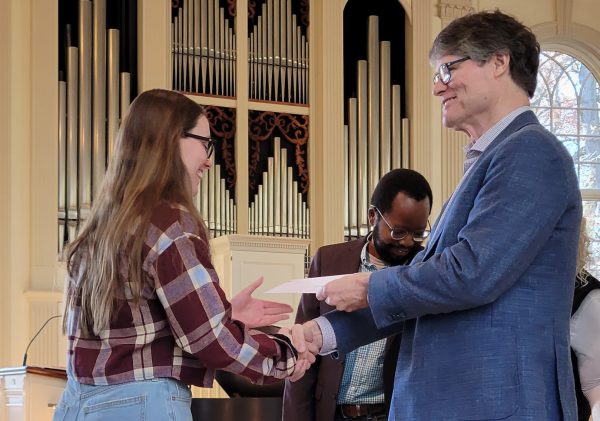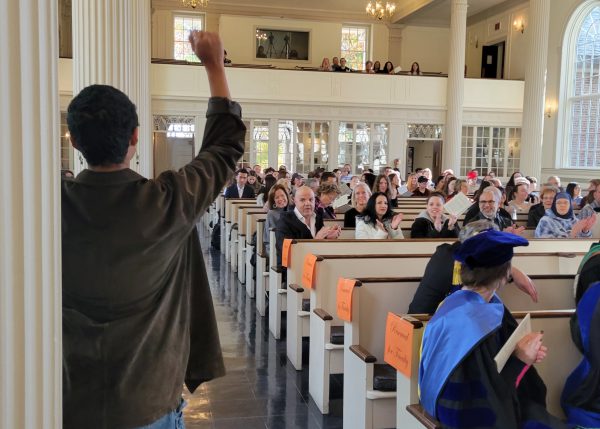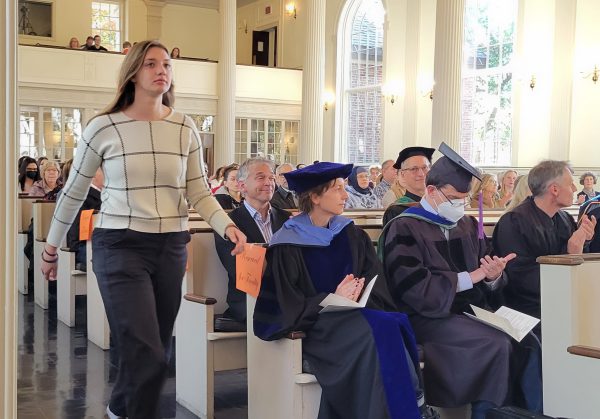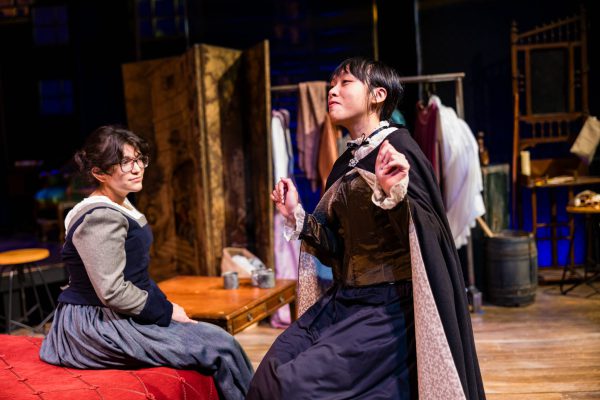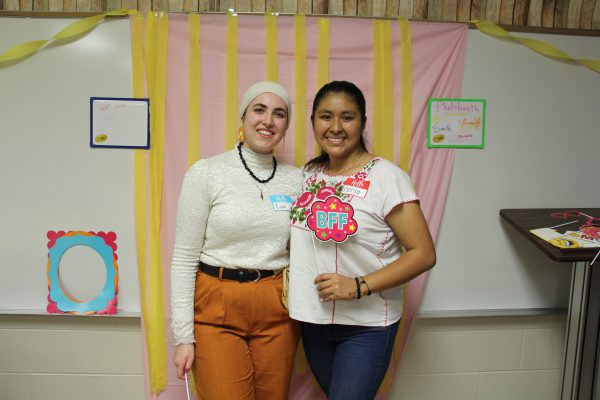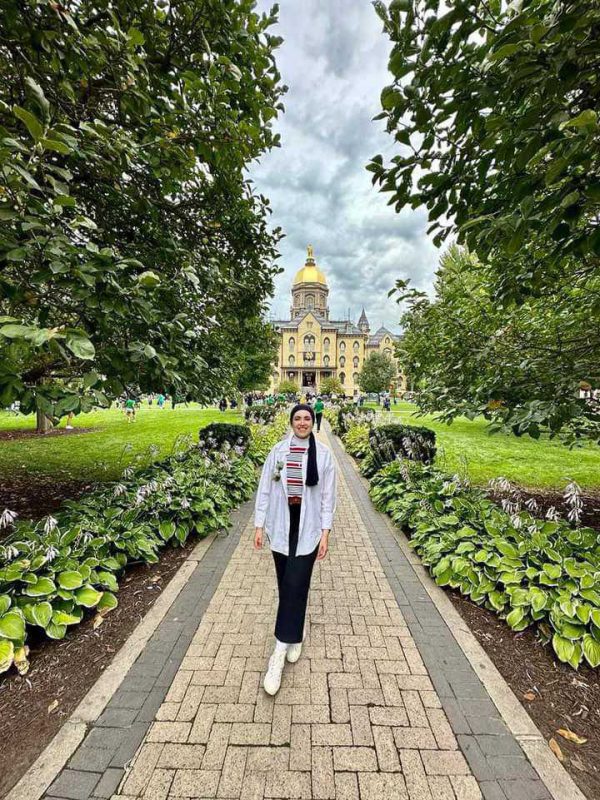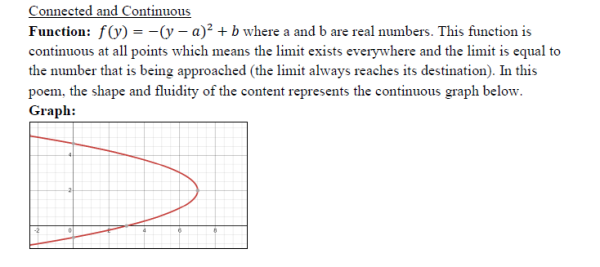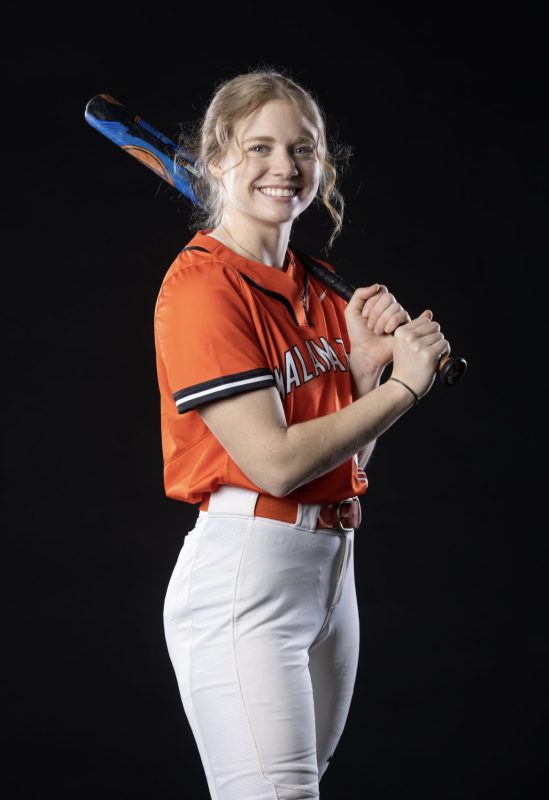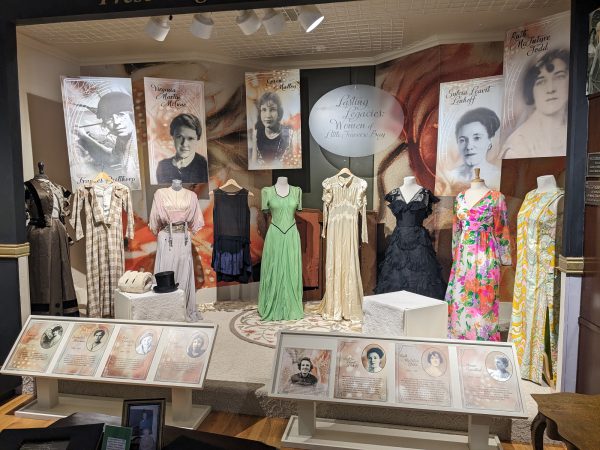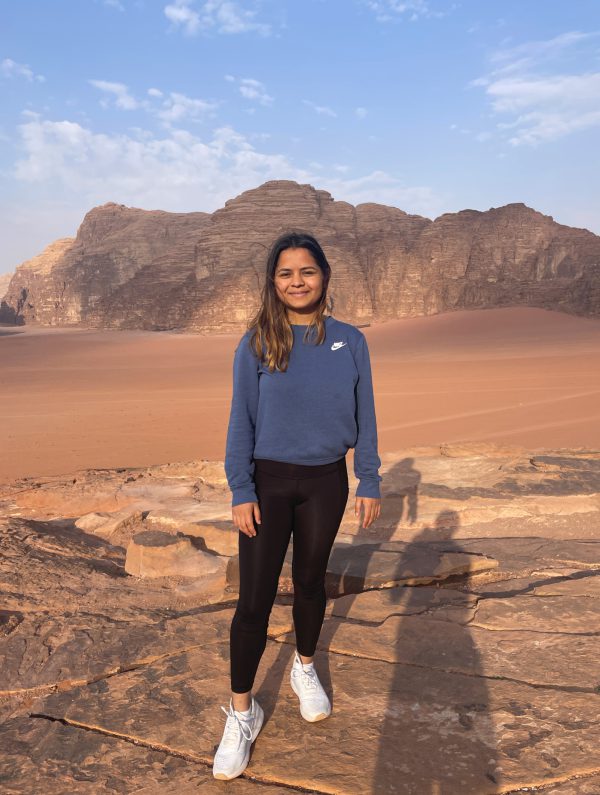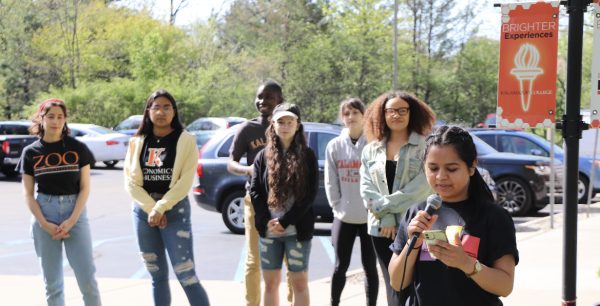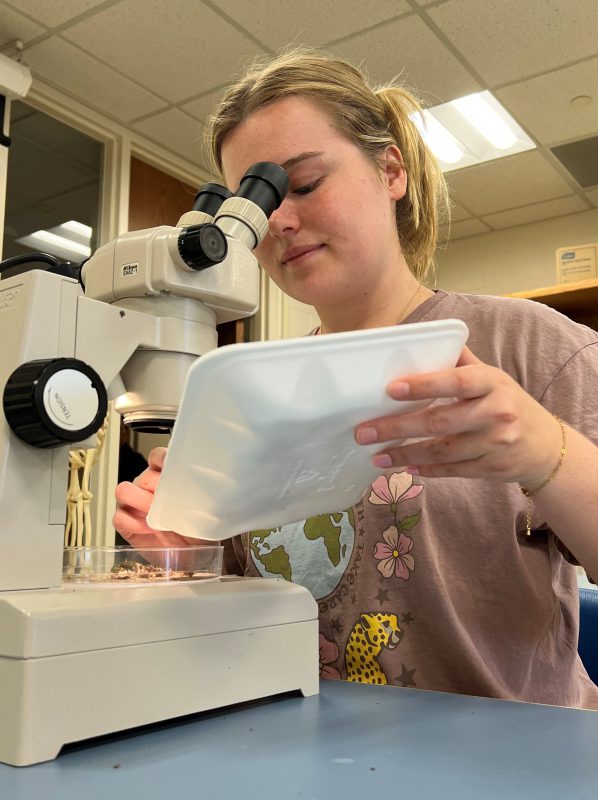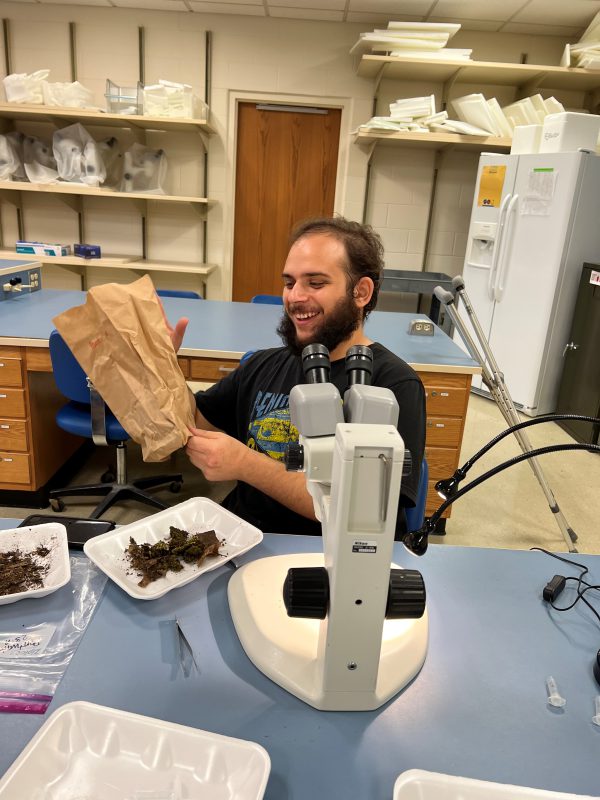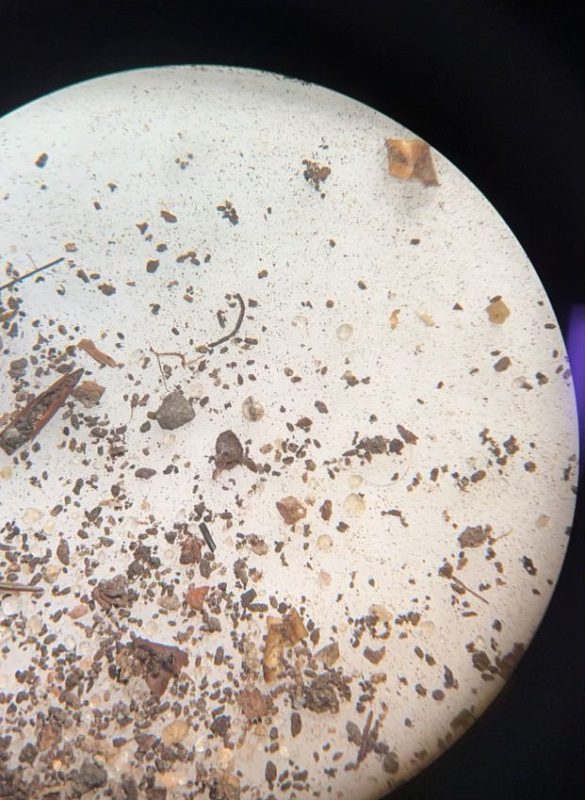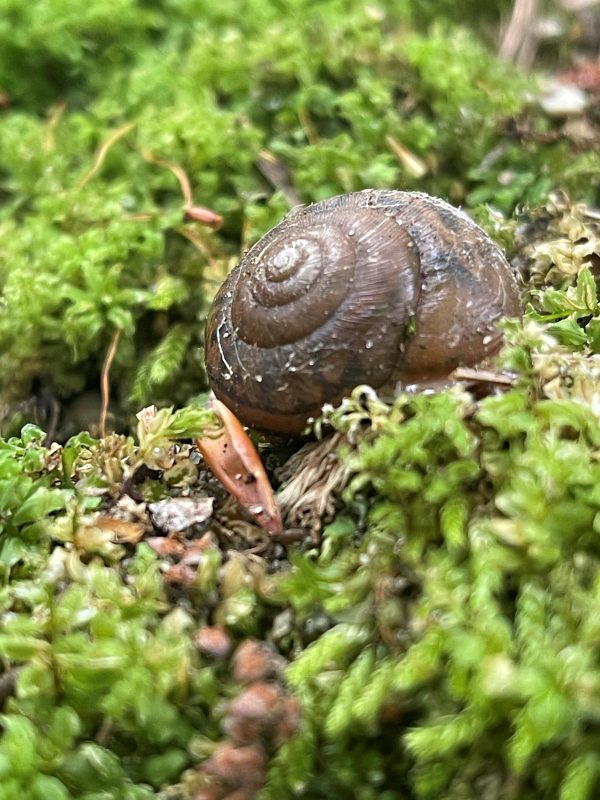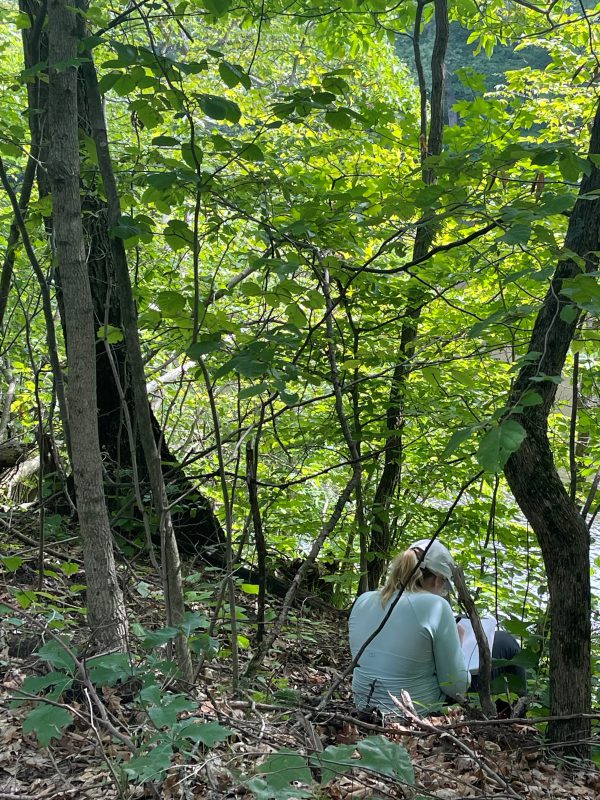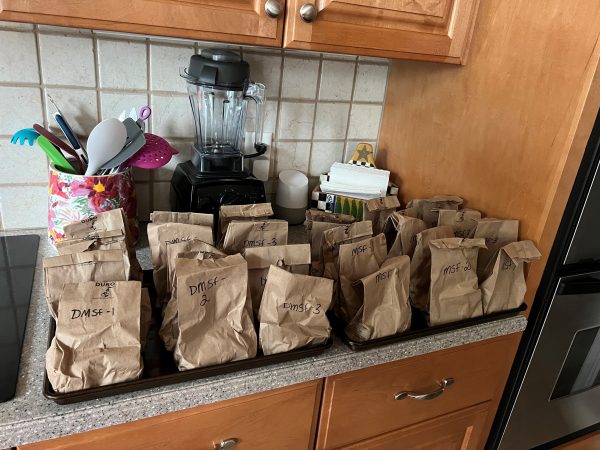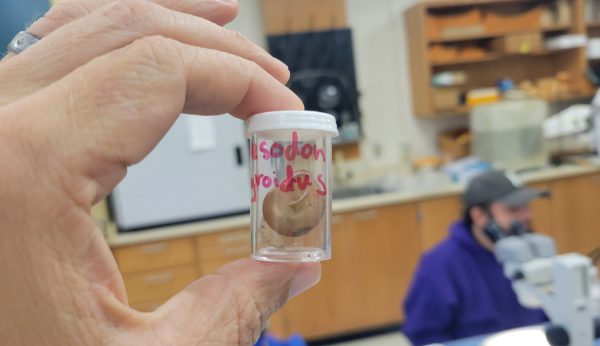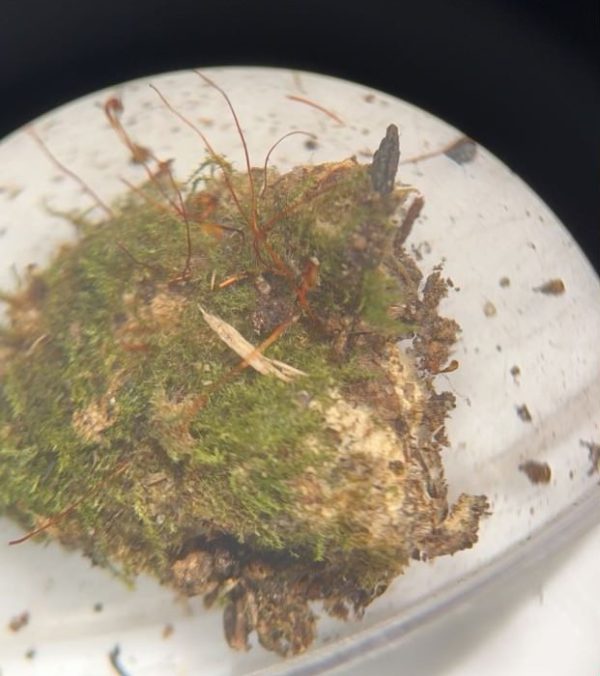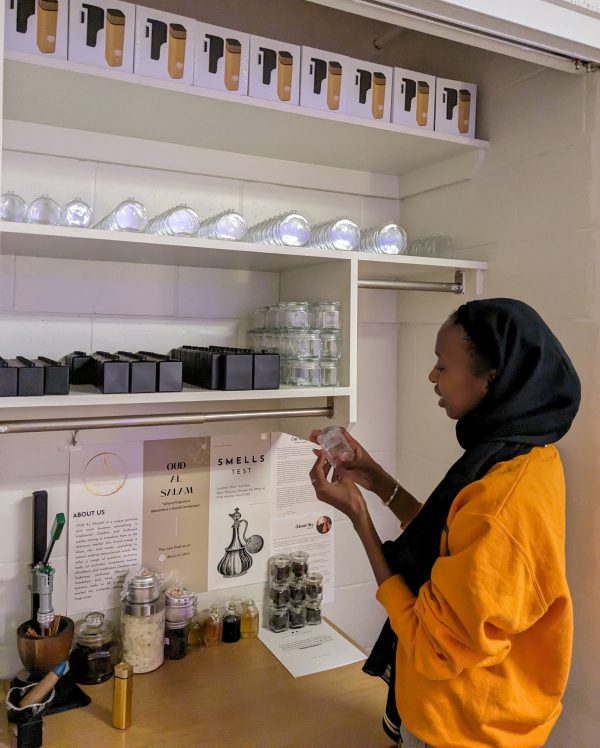

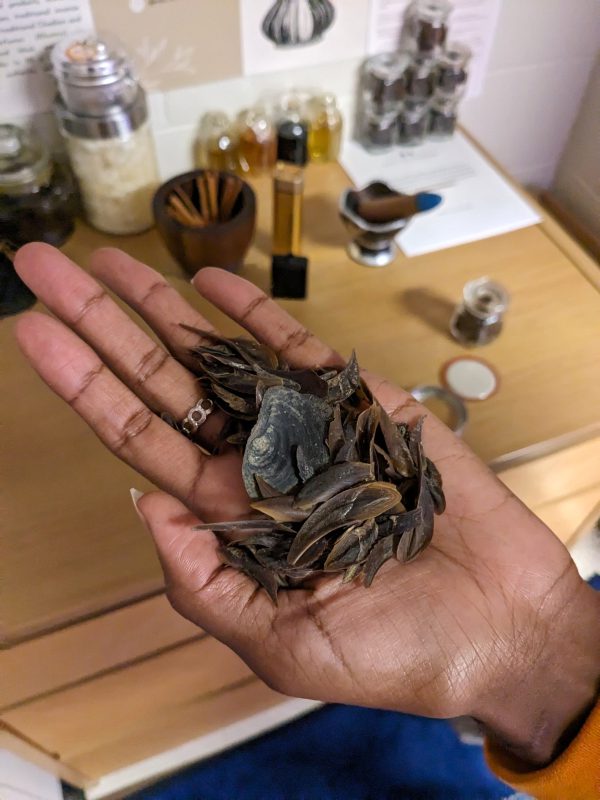
Darsalam Amir ’24 started pondering the idea of launching a fragrance business based on her family’s cultural heritage in high school.
At Kalamazoo College, she found the support she needed to bring that dream to life before she graduates. As of November 15, Oud Al Salam is up and running, offering body oil, incense and perfume in two different sandalwood and musk scents at oudalsalamscents.com.
A triple major in biochemistry, economics and business, and religion, Amir was born in Sudan. Her mother is Sudanese, and her father’s family is from Chad. The two African nations share a border, and Amir’s parents grew up in similar cultures.
After living in several different African countries, Amir’s family settled in Ghana when she was 3 years old. When she was 11, they moved to Lansing, Michigan—both times for educational opportunities for Amir and her siblings. At the same time, her father insisted that they speak only Zaghawa at home and maintain connections to their cultural background through food, dress and music.
The creation and use of natural scents represent a big piece of that cultural connection for Amir. On the Oud Al Salam website and on her Instagram at oud_al_Salam, Amir shares both updates about her scents and insights into their cultural significance.
“The scents and fragrances I create are a direct reflection of the cultural significance of perfumes and incense in my community,” Amir said. “They have held a special place in our lives for generations and have been a part of our traditions and rituals. The art of crafting perfumes and incense is a communal activity in my family and community.”
In Ghana and in the U.S., Amir’s mother found Sudanese communities that gathered often at each other’s houses.
“I vividly remember the gatherings, the sharing of fragrances, and the discussions about formulas and tweaks to create unique scents,” Amir said. “This cultural practice fostered a sense of togetherness, identity and appreciation for our heritage. By sharing these fragrances with a broader audience through my company, I am preserving and promoting the cultural heritage of my family and community. The scents are not just products; they are a bridge that connects people to our roots, evokes memories and fosters an understanding and appreciation of the beauty of diversity.”
Having completed an early college program, Amir came to K with both a high school diploma and an associate’s degree in pre-health studies. She planned to earn a bachelor’s in biochemistry and proceed to medical school.
“I came to K thinking, ‘I know exactly what I want, I’m going to get in and out,’” Amir said. “I only needed a few courses to get my degree. Then the K culture got me and I wanted the full experience.”
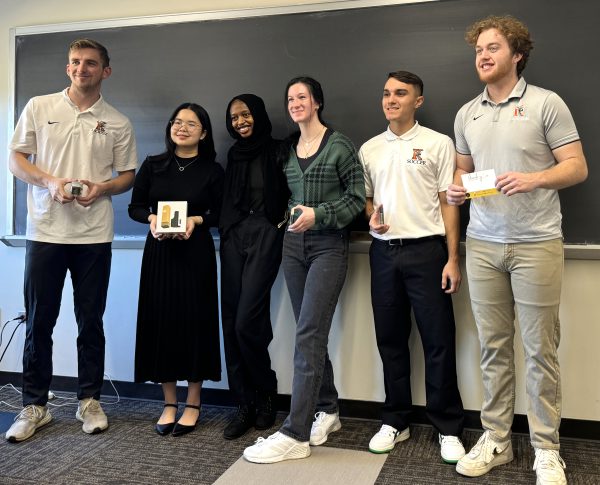
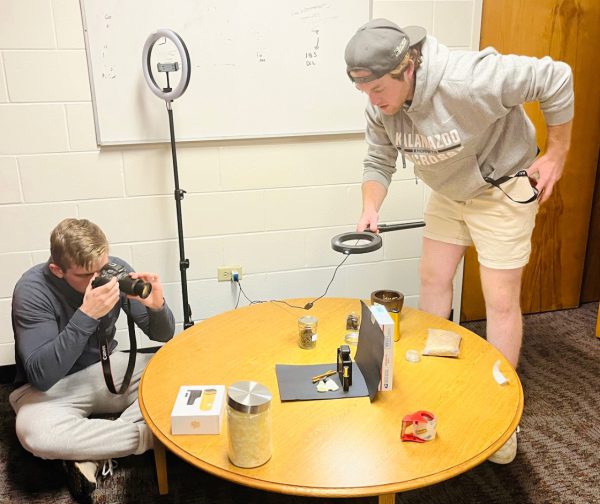
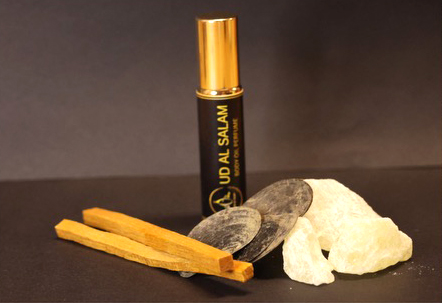
Amir realized business classes at K might help her budding entrepreneurship more than her years of unsatisfying internet research had. She started with introductory economics classes and basic accounting—which she found fascinating—before working her way up to marketing classes with L. Lee Stryker Associate Professor of Business Management Amy MacMillan. She found inspiration in MacMillan’s Principles of Marketing course, where students work with clients to build a marketing plan.
“Our client was in nonprofit work,” Amir said. “She wasn’t making any money, but she was running this business, and I thought, ‘If she’s doing it, I could do it, too.’ It was a real-world situation. I had thought I was doing market research by watching YouTube videos and reading online articles. Now we were doing real market research and it was so impactful.”
Amir had been working in a pharmacy and saving as much as she could to invest in her company. When she finished the Principles of Marketing course as an enrolled student consultant, she approached MacMillan about returning as a client.
“I knew Darsalam to be a very dedicated student, so I knew that she would follow through and make it a worthwhile project,” MacMillan said. “I was also intrigued with her idea. When you introduce a new product, you want to make sure it is truly something new and different that meets a meaningful need. In this case, the idea of this high-end perfume that would incorporate ingredients from Chad seemed like a unique positioning that would have appeal.”
While the class has had a few past clients who are current K students, that happens rarely—and MacMillan gets excited about it every time.
“What I love about it is students supporting other students, and the recognition that you don’t have to wait until you’re grown up to be an entrepreneur; you can be an entrepreneur now and have these great ideas,” MacMillan said. “What really excites me about this is that peer-to-peer experience.”
Working with Amir provided her team with real-time, hands-on experience.
“The student teams work with the client the whole term,” MacMillan said. “The final presentation is usually a plan the client can execute sometime in the next six to 12 months. What is just wild about this project is that they’ve actually been off and running. They did fragrance testing in Hicks where they helped test both the appeal of certain fragrances and which ideas resonated most to help Darsalam understand not just how to choose the fragrances, but how to position and market them. It’s unfolding under their eyes, a business using their input in real time.”
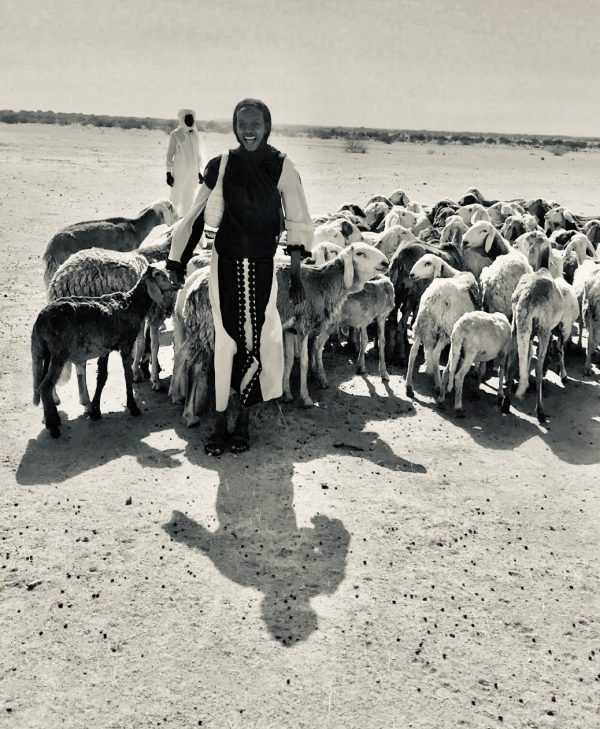
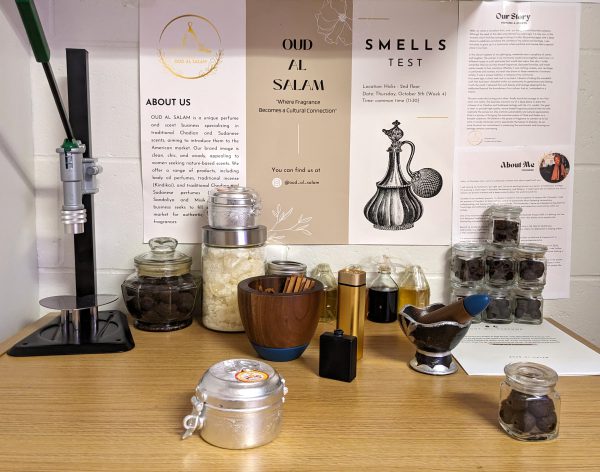
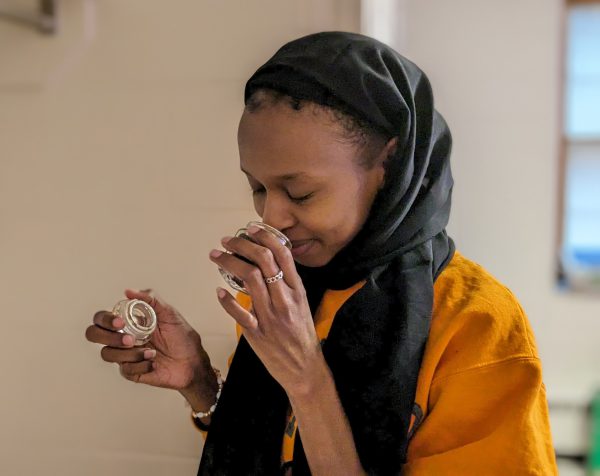
Helen Le ’26, a member of Amir’s Principles of Marketing student team, agreed.
“Everything we have learned in class we apply immediately to our project,” Le said. “I feel like it is a more authentic experience and perspective. This class allows me to quickly apply the knowledge I’ve learned in practical situations.”
The project experience taught Le about handling workload, working in a group, time management, how to promote and execute ideas, and more.
“Darsalam’s energy and attitude will bring her and the business more success in the future,” Le said. “‘Where Fragrance Becomes a Cultural Connection’ is one of my favorite Oud Al Salam mission statement sentences. This is the part I like the most about this start-up; it is not only about selling a product, but also the experiences and the cultural promotion.”
“It’s exciting when you see a student take an idea and make it into a reality, especially when it aligns with a passion of theirs,” MacMillan said. “It’s a way for Darsalam to blend her business skills with her cultural heritage and to bring something new and different to the market.”
The student team has provided crucial marketing research, surveys, product testing and pricing assistance, Amir said. Her friend Amalia Kaerezi ’25 helped design the logo. An entrepreneurship workshop with David Rhoa, visiting assistant professor of economics and business, has helped inspire and shape Oud Al Salam. Her chemistry knowledge and lab experience proved invaluable in the process of developing the fragrances. Even her religion major has played a role, as a summer 2023 trip to Chad in service of her Senior Integrated Project in the religion department offered an opportunity to learn from family, practice perfumery and purchase ingredients—musk stones, sandalwood and operculum onycha shells.
Other supplies, such as bottles and labels, have been purchased online.
“One of the main hurdles has been finding reliable vendors who understand and share my vision for designing unique and appealing product packages,” Amir said. “This process has taught me the value of persistence and the importance of building strong partnerships with suppliers who believe in the same aesthetic and quality standards that I uphold. Balancing my business with my other commitments both on and off campus has been another significant challenge.”
In addition to her three majors and her pharmacy job, Amir works in the College library and as a residential assistant for Trowbridge and Dewaters halls. She also serves as president of Kalama-Africa and as an active member of the diversity committee for Kalamazoo College Council of Student Representatives.
“Sometimes we walk behind Harmon past the K buses that say, ‘More in four,’” Amir said. “Whenever my friends see that, they’re like, ‘That’s you, Darsalam! They said more in four, you said more in a lifetime, and you’re doing it.’ That slogan speaks to me right now. I tried to get all the experience that I could in these four years.”
Amir plans to graduate in spring 2024 and take two gap years to develop Oud Al Salam before beginning medical school. She is looking into fellowships that could help her travel around Africa to learn more about the art of perfumes and incense.
Launching Oud Al Salam is just the beginning of the dream. Amir wants to explore sustainable and eco-friendly packaging, collaborations with local artisans, support for the communities where she sources ingredients, and classes for people interested in learning more about perfumery.
“I’m genuinely excited about the future of my company,” Amir said. “My primary goal is to see it thrive and reach new heights, with our scents becoming household names that people trust and love. I envision physical stores opening up across Michigan, offering our customers a tangible and immersive experience with our fragrances.
“My goal is not just to sell products but to create a brand that resonates with people on a deeper level and contributes positively to society.”



